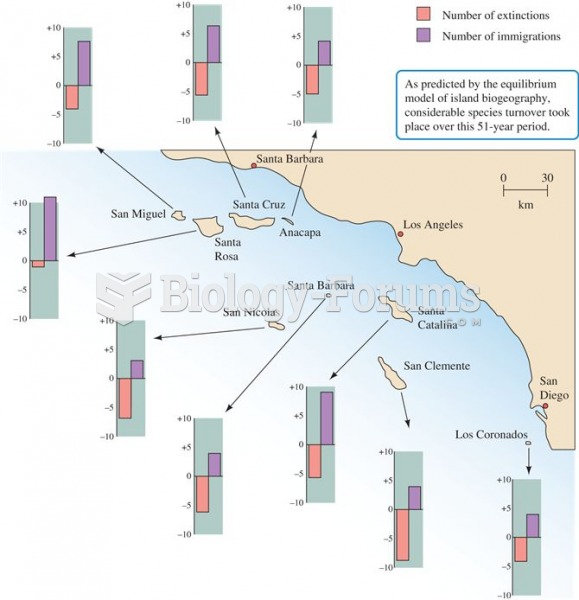|
|
|
Vital signs (blood pressure, temperature, pulse rate, respiration rate) should be taken before any drug administration. Patients should be informed not to use tobacco or caffeine at least 30 minutes before their appointment.
Despite claims by manufacturers, the supplement known as Ginkgo biloba was shown in a study of more than 3,000 participants to be ineffective in reducing development of dementia and Alzheimer’s disease in older people.
In most cases, kidneys can recover from almost complete loss of function, such as in acute kidney (renal) failure.
Barbituric acid, the base material of barbiturates, was first synthesized in 1863 by Adolph von Bayer. His company later went on to synthesize aspirin for the first time, and Bayer aspirin is still a popular brand today.
The term pharmacology is derived from the Greek words pharmakon("claim, medicine, poison, or remedy") and logos ("study").
 Species currently endangered in Canada include (a) the Burrowing Owl, Athene cunicularia; (b) Taylor
Species currently endangered in Canada include (a) the Burrowing Owl, Athene cunicularia; (b) Taylor
 Extinction and immigration of bird species on the California Channel Islands between 1917 and 1968 (
Extinction and immigration of bird species on the California Channel Islands between 1917 and 1968 (





